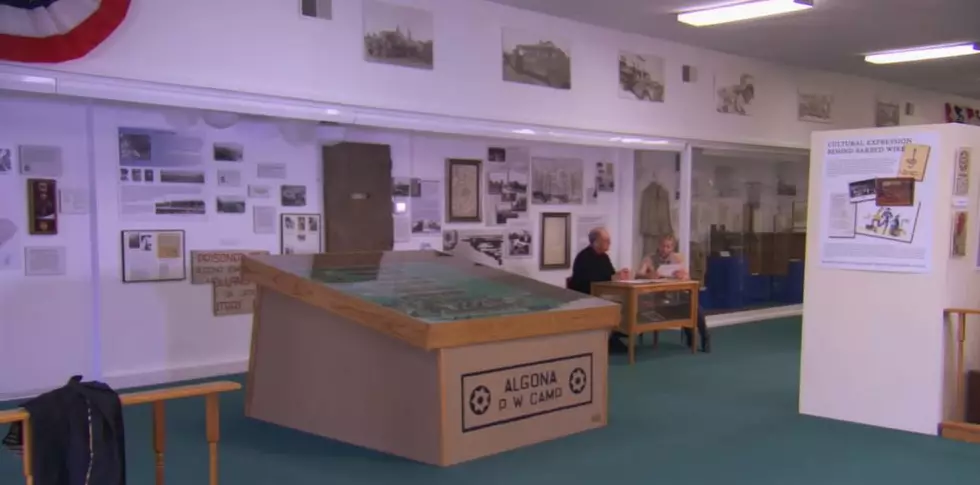
Celebrity Has Eerie Connection To Iowa POW Camp
It can be incredibly emotional to take a look back at your family history, especially if there are some dark secrets.
Last year, a movie was released based on events that took place in a prisoner-of-war camp in Iowa during World War 2, called "Silent Night in Algona."
You can read more about that down below!
After some digging, I discovered that nearly a decade ago, a certain celebrity traced her own family history back here to Iowa.

Chelsea Handler, comedian and former talk show host shot an episode of 'Who Do You Think You Are?' with TLC nearly a decade ago. In the show, she dove into her maternal grandfather's time as a German soldier in World War 2.
His name was Karl Stöker and while she loved him and had a close relationship with him during her childhood, Handler had no clue about her father's time as a soldier.
Her grandfather was born in Bochum, Germany and grew up to be a soldier fighting for his homeland during World War II. In a translated document written by her German grandmother, the comedian discovered that her father was initially employed as a draftsman apprentice before working for one of the "biggest Nazis" in town, Flottman.
Documentation found had Handler suspecting that her grandfather was involved in the SA which was the assault division for the German Nazi Party, according to Encyclopedia Britannica.
However, she did receive confirmation that the relative had no ties to the Nazi party and was drafted into the German army.
"He really had no choice about this, " a historian in Berlin confirmed during the taping of the show.
In August of 1944, he ended up being captured by U.S. troops in France.
Handler obviously worried that her grandfather prescribed to the heinous Nazi ideology because of her deep connection to her family's Jewish roots.
After doing some digging in Europe, the former talk show host booked a flight to an even more foreign place to her: Iowa. After he was captured in August he was taken as a prisoner of war to Algona, Iowa several weeks later.
Handler found out that while her grandfather was a prisoner, he and the other soldiers were kept well fed and given plenty of opportunities to exercise. After looking at photos of Stöker of when he first got to Iowa versus a few weeks later she noticed a stark difference.
He was much skinnier while he was with the Germans, but during his time in America he gained a few pounds and looked MUCH healthier. The historian from the Algona POW Camp museum shared that the German army told their men that if the Americans caught them they'd be castrated or experimented on.
After the war, her grandfather returned to Germany and ended up bringing his family to America not too long later. Did his experience as a prisoner in Iowa influence his decision to move to America?
We'll never know!
Elkport: Iowa's Ghost Town
E.J. Warner's First Time Starting as QB For Temple
More From 98.1 KHAK



![You’ll See an Iowa Native on ‘The Bachelor’ This Season [UPDATE]](http://townsquare.media/site/675/files/2022/12/attachment-jerry-klein-nAU7f7sR9eY-unsplash.jpg?w=980&q=75)
![Iowa College Student Is A Mario Kart National Champion [WATCH]](http://townsquare.media/site/675/files/2023/01/attachment-Kart.jpg?w=980&q=75)


